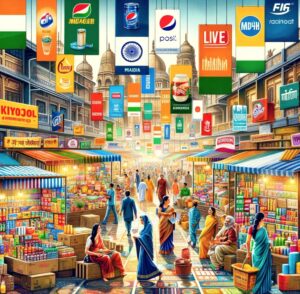1. Business Models & Key Segments
Polycab India Ltd.
- Core Business: Largest wire and cable manufacturer in India.
- Key Segments: Wires & cables (85%+ of revenue), FMEG (Fast-Moving Electrical Goods) like fans, lights, and switches.
- Growth Strategy: Expanding into consumer electricals and smart solutions.
Havells India Ltd.
- Core Business: Diversified electrical goods manufacturer.
- Key Segments: Wires & cables, switchgear, lighting, fans, appliances, Lloyd air conditioners.
- Growth Strategy: Strong branding, premium products, and expansion in smart home solutions.
Finolex Cables Ltd.
- Core Business: Electrical and communication cables.
- Key Segments: Wires & cables (75%+ revenue), optic fiber, LAN cables, switchgear.
- Growth Strategy: Focus on high-margin, high-quality cable products.
KEI Industries Ltd.
- Core Business: Manufacturing power and control cables, EPC (Engineering, Procurement, and Construction) projects.
- Key Segments: EHV (Extra High Voltage), HT (High Tension), LT (Low Tension) cables, stainless steel wires.
- Growth Strategy: Expansion in export markets and EPC contracts.
RR Kabel Ltd.
- Core Business: Wires & cables, growing presence in consumer electricals.
- Key Segments: Wires & cables, fans, switches, lighting.
- Growth Strategy: IPO-driven expansion, premium quality positioning.
2. Market Capitalization & Financial Performance (Latest Available Data)
| Company |
Market Cap (₹ Cr) |
Revenue (₹ Cr, FY23) |
Net Profit (₹ Cr) |
EBITDA Margin (%) |
YoY Growth (%) |
| Polycab |
~82,000 |
14,500+ |
1,600+ |
~14-15% |
~15% |
| Havells |
~80,000 |
17,000+ |
1,250+ |
~12-13% |
~10% |
| Finolex |
~15,000 |
4,500+ |
450+ |
~12-13% |
~8% |
| KEI |
~25,000 |
7,000+ |
600+ |
~11-12% |
~20% |
| RR Kabel |
~10,000 |
6,500+ |
400+ |
~10-11% |
~22% |
🔹 Observations:
- Polycab dominates in revenue and profit.
- Havells has the highest revenue due to its diversified portfolio.
- KEI and RR Kabel show strong YoY growth.
- Finolex maintains healthy margins despite a smaller market presence.
3. Strengths & Weaknesses
| Company |
Strengths |
Weaknesses |
| Polycab |
Market leader, strong distribution, brand equity |
High dependence on wires & cables (85%+ revenue) |
| Havells |
Diversified business, premium positioning |
Higher expenses on branding, lower cable market share |
| Finolex |
Strong in telecom cables, high-quality products |
Limited diversification, lower revenue growth |
| KEI |
Strong B2B presence, EPC projects, exports |
Less consumer brand recall, high working capital |
| RR Kabel |
Fast-growing, premium focus, expanding retail |
Smaller market cap, lower margins than peers |
4. Impact of Tariffs Imposed by Trump on the Cable Industry
The U.S.-China trade war, which escalated under President Donald Trump’s administration, led to several tariff-based challenges that have rippled through the global cable industry. These tariffs primarily impacted companies that sourced raw materials like copper and aluminum, which are integral to wire and cable manufacturing. The key points of impact on the Indian cable industry include:
1. Increased Costs of Raw Materials
The tariffs imposed on Chinese imports of copper, aluminum, and other critical components inflated raw material costs worldwide. As a result, cable manufacturers faced margin pressure, particularly in countries dependent on imports, such as India. Polycab and KEI, which import a significant portion of their raw materials, saw cost pressures in the short term.
2. Supply Chain Disruptions
With the tariff war causing disruptions in the global supply chain, cable manufacturers had to shift to alternative suppliers or adjust their procurement strategies. For Indian companies like Havells and Finolex, this translated into increased lead times and logistics costs.
3. Strategic Shifts and Localization
In response to global tariffs, companies like Polycab and KEI increased their focus on local manufacturing and sourcing. This allowed them to mitigate some of the impact of international tariffs by reducing their reliance on expensive imported materials. For example, Polycab ramped up its domestic supply chain in the wake of tariffs, ensuring more localized production and stabilizing costs.
4. Export Impact
U.S.-imposed tariffs on Chinese cable exports meant that American companies increasingly turned to alternative suppliers for cable and wiring needs. This opened doors for Indian manufacturers to expand exports to the U.S. market. Polycab, KEI, and Finolex all experienced growth in international markets, as tariffs on Chinese manufacturers made Indian products more competitive in terms of price.
5. Long-Term Strategic Impact
While the immediate impact of tariffs caused price volatility and operational disruptions, Indian manufacturers eventually adjusted by optimizing their supply chains, diversifying procurement sources, and expanding exports to regions like the Middle East and Africa. The Indian wire and cable sector emerged more resilient, with stronger export growth in the years following the trade war’s peak.
5. Future Strategies & Growth Potential
- Polycab aims to strengthen FMEG and international markets, leveraging its dominant cable business and expanding its footprint globally, especially in markets previously impacted by the China-U.S. tariff disputes.
- Havells is focused on smart appliances, premium branding, and expansion in air-conditioning and consumer electronics, while continuing to adjust its sourcing strategies.
- Finolex is enhancing its presence in optic fiber and specialized cables, leveraging its strong brand to capitalize on domestic and international opportunities.
- KEI is expanding its EPC segment, growing exports, and targeting opportunities in the power sector as infrastructure projects rebound.
- RR Kabel is leveraging IPO proceeds for aggressive market expansion and brand-building, with a focus on quality and premium segment offerings.
6. Investor & Market Positioning
- Polycab is favored for long-term growth due to its leadership in the wire & cable market and international expansion.
- Havells is a balanced play with strong consumer electrical growth and a diversified portfolio.
- KEI appeals to infrastructure and industrial investors looking for high-growth in EPC and exports.
- Finolex is a niche player in telecom and electrical wiring, suitable for investors seeking a stable, high-margin business.
- RR Kabel is an emerging contender with high growth potential in both the wire & cable and consumer electrical segments.
Conclusion: Which Stock Stands Out?
Polycab leads in scale and profitability, making it the best pure-play wire & cable stock. Havells’ diversification ensures stability, and KEI, along with RR Kabel, is showing robust growth potential. The impact of tariffs has reshaped global supply chains and enhanced opportunities for Indian manufacturers. While Finolex focuses on niche, high-quality products, the choice of stock depends on your investment strategy and preference for growth versus stability.




